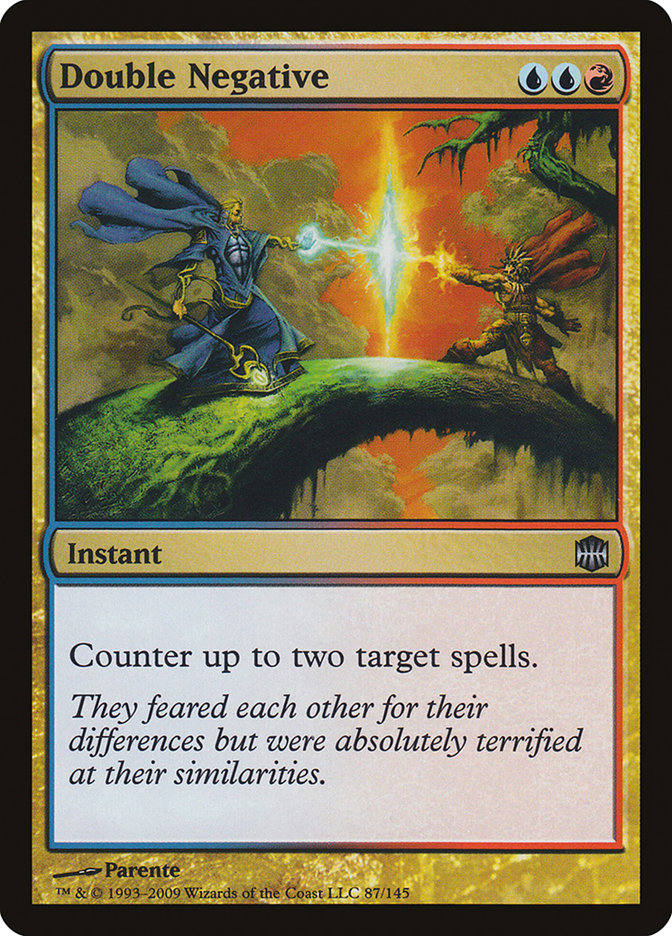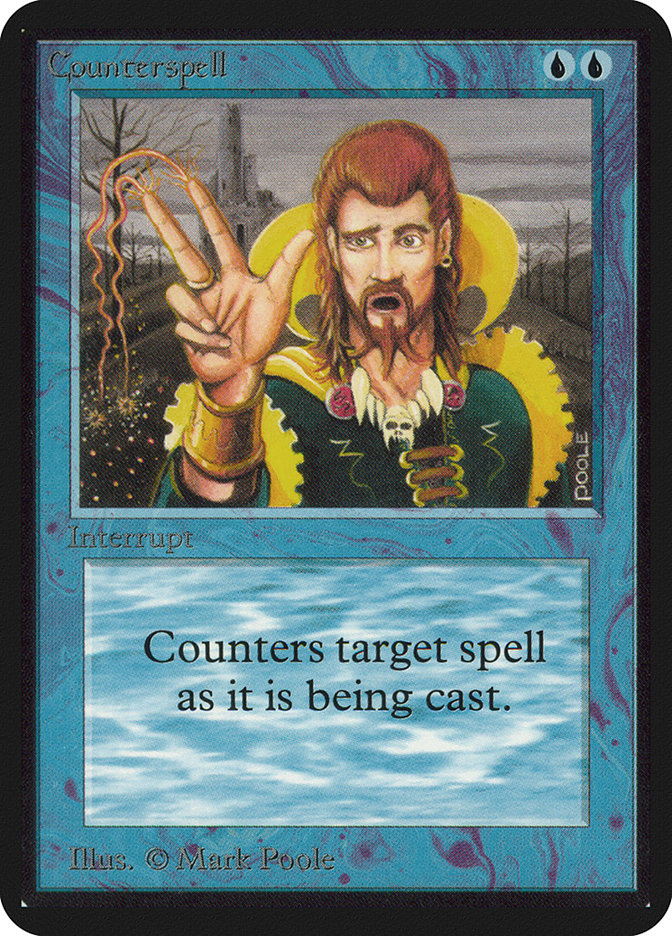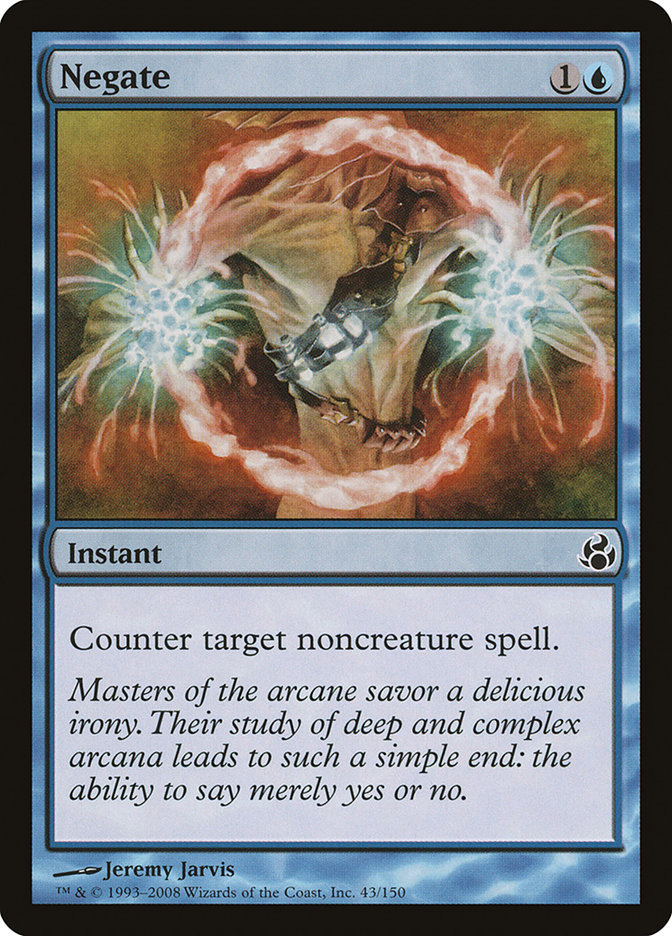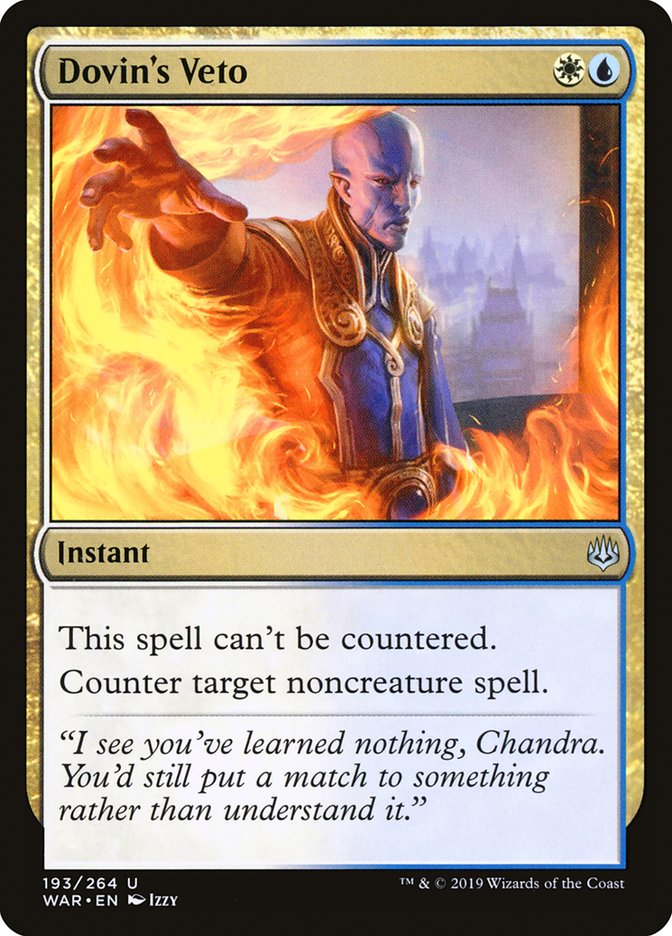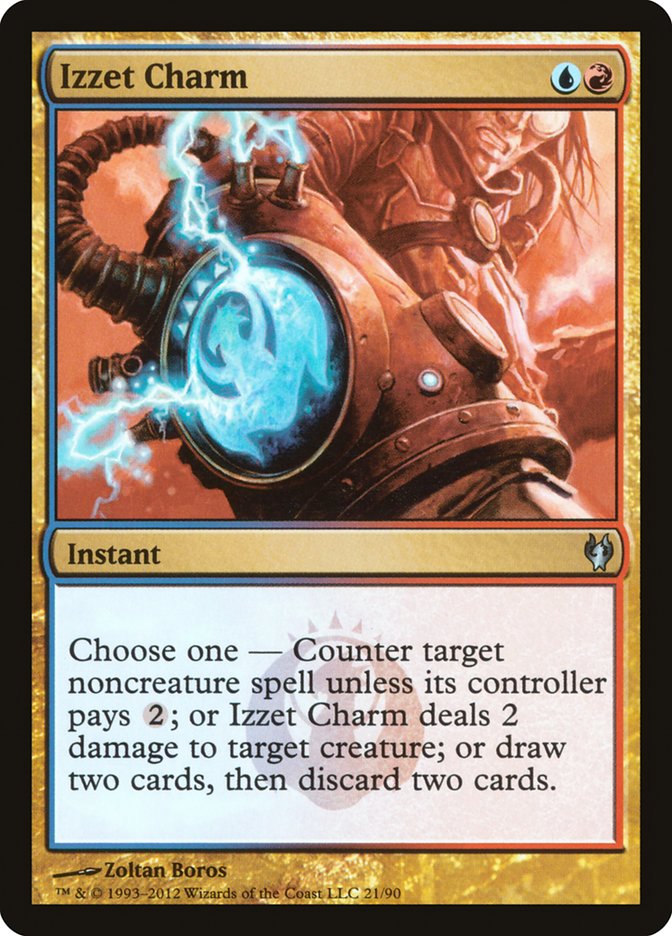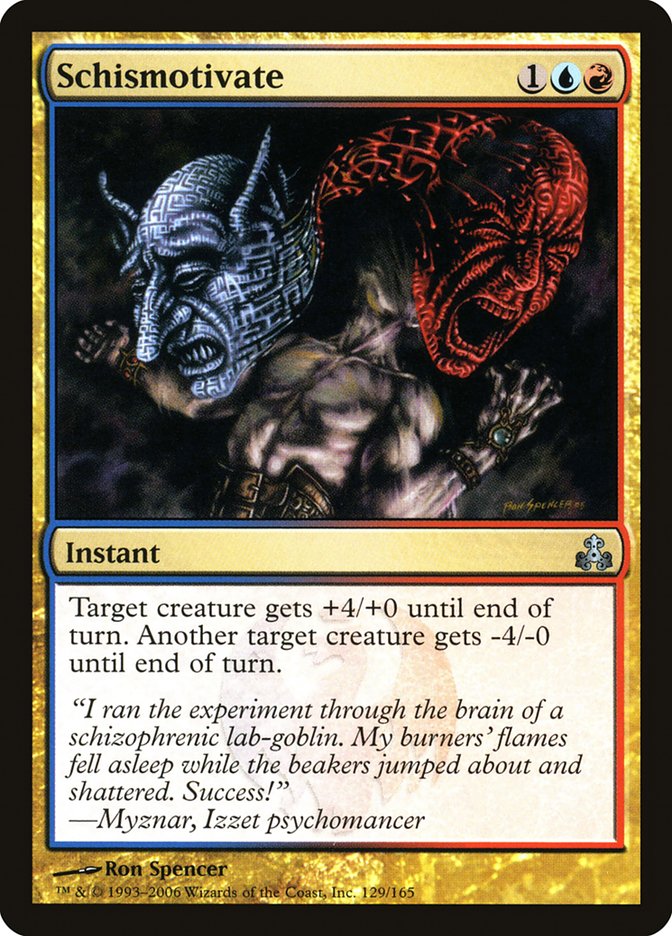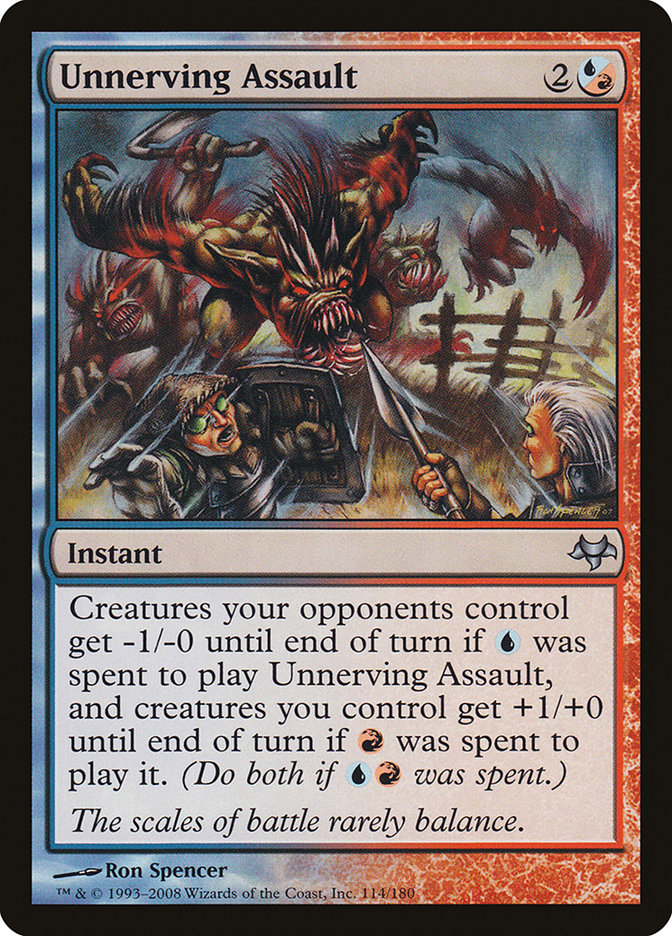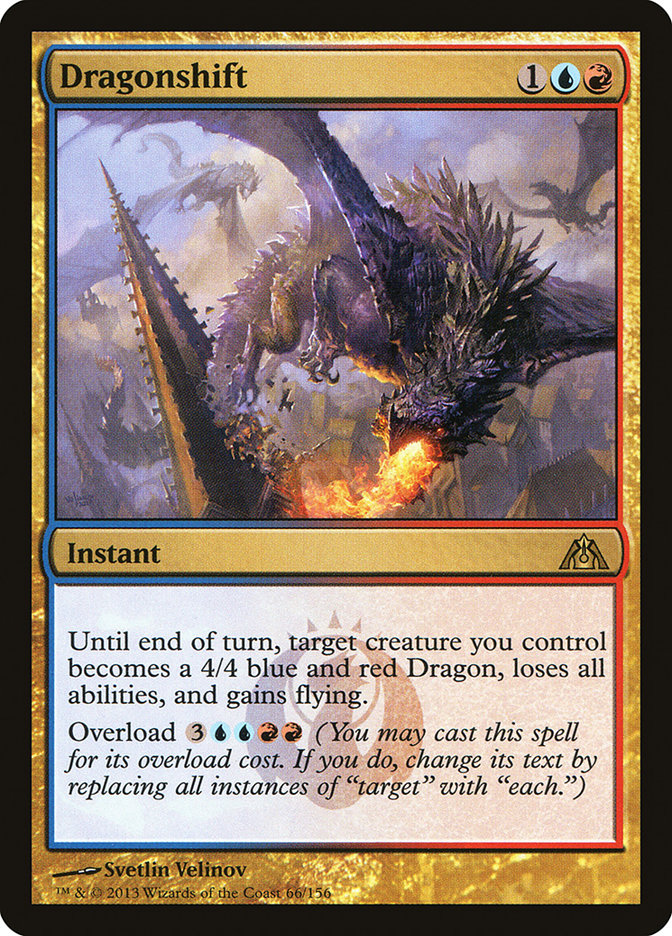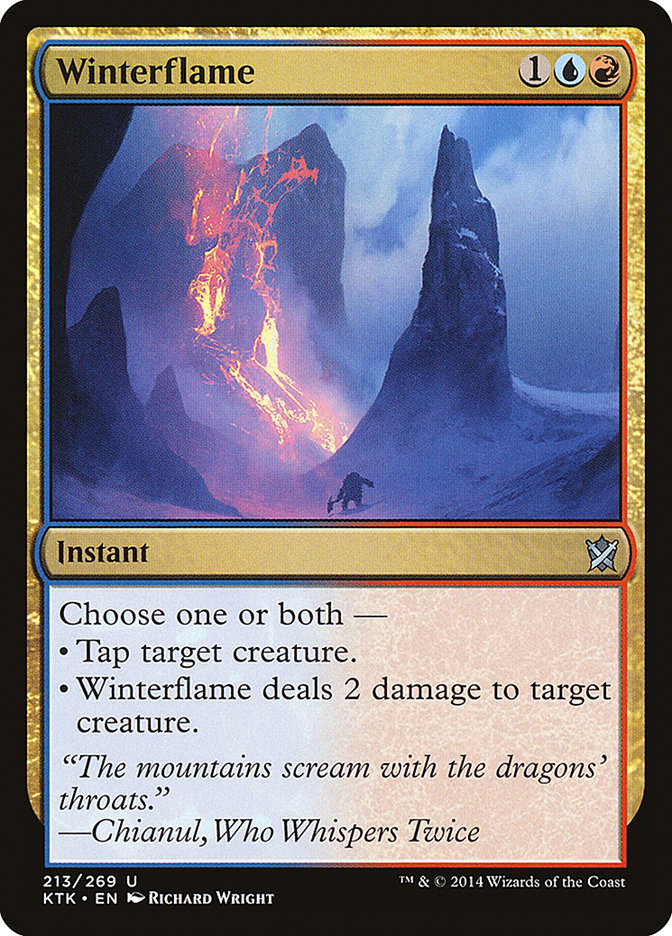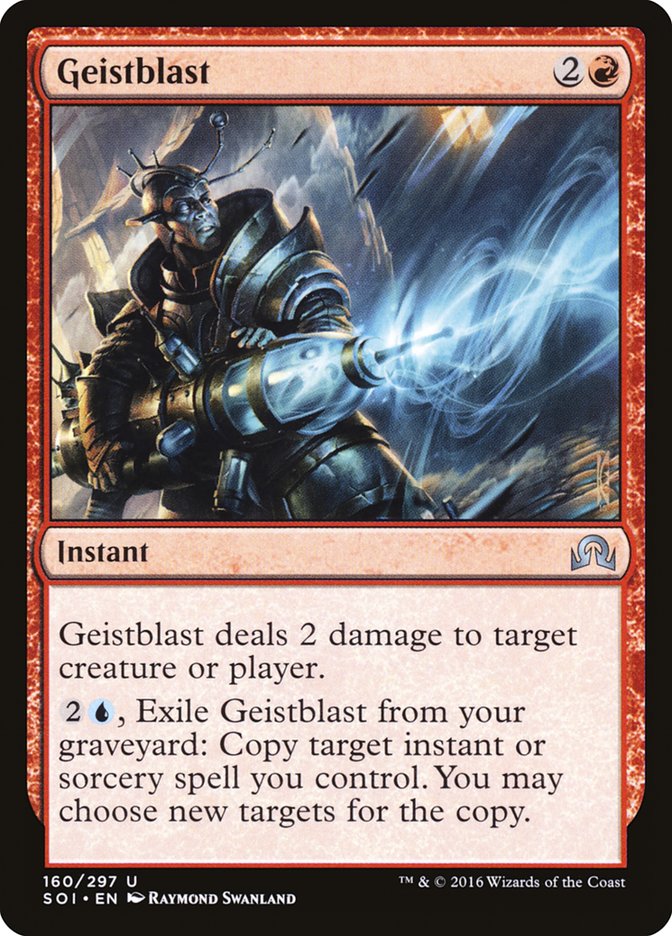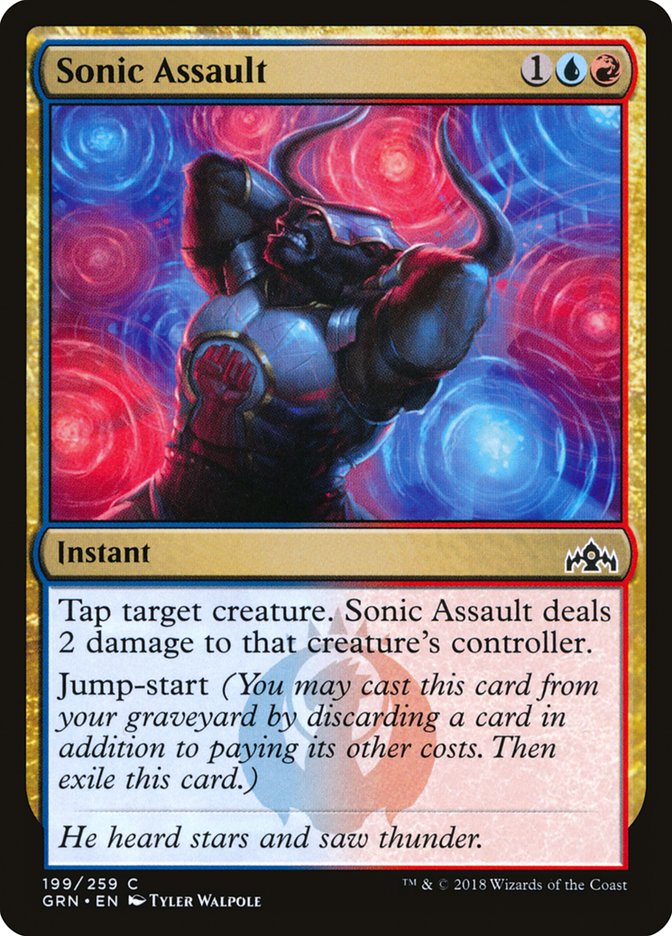Double Negative MTG Card
| Mana cost | |
| Converted mana cost | 3 |
| Rarity | Uncommon |
| Type | Instant |
| Released | 2009-04-30 |
| Set symbol | |
| Set name | Alara Reborn |
| Set code | ARB |
| Number | 87 |
| Frame | 2003 |
| Layout | Normal |
| Border | Black |
| Illustred by | Paolo Parente |
Text of card
Counter up to two target spells.
They feared each other for their differences but were absolutely terrified at their similarities.
Cards like Double Negative
Double Negative stands out in the array of Magic: The Gathering counter spells. As a counter spell, it holds a unique place alongside traditional options like Counterspell and Negate. Double Negative differs in that it can simultaneously counter two spells, providing strategic value during your opponent’s key turns. In contrast, Counterspell offers a straightforward and efficient one-for-one trade, countering a single spell for two mana.
Moving to another comparison, we find Dovin’s Veto. While Dovin’s Veto is unable to counter more than one spell, it has the upside of being uncounterable itself, ensuring that the targeted spell is stopped. Double Negative allows for wider board control during multi-spell plays but lacks the guarantee that Dovin’s Veto provides against counter-wars. Finally, there’s the versatile Izzet Charm, which can counter noncreature spells, but also gives players the flexibility to choose different modes if countering is not needed.
In reflecting on their roles in gameplay, Double Negative may require more specific conditions to be fully leveraged, but in the right deck and situation, its ability to disrupt multiple threats can be a game-changer compared to its single-target counterparts.
Cards similar to Double Negative by color, type and mana cost
Card Pros
Card Advantage: When it comes to managing your resources in a game, Double Negative doesn’t disappoint. This card effectively negates two spells, allowing for a potential 2-for-1 scenario. This means you can disrupt your opponent’s strategy while keeping card parity, potentially swinging the momentum in your favor.
Resource Acceleration: Although Double Negative itself doesn’t directly provide mana or tokens, it can greatly benefit decks that thrive on spell interactions. By countering crucial spells, it allows you to efficiently manage your mana and maintain tempo, ensuring that your resources are being allocated in the most impactful manner during the heat of the match.
Instant Speed: The true value of Double Negative shines at instant speed. By being able to react dynamically to your opponent’s actions, you can hold up mana and bluff additional answers, keeping them second-guessing. This flexibility can lead to advantageous board states and propels you towards a winning position by countering key threats or pivotal plays on your opponent’s turn.
Card Cons
Discard Requirement: Double Negative necessitates the discarding of a card to activate its potential, which can deplete your hand and leave you with fewer options in later turns. This can be particularly troublesome when you’re trying to maintain card advantage over your opponent.
Specific Mana Cost: It demands a precise combination of blue and red mana, which means it might not easily fit into decks that aren’t tailored to those colors. Players running a more diverse color palette may find this card challenging to utilize effectively.
Comparatively High Mana Cost: With its casting cost, Double Negative may be less appealing versus streamlined single-color counterspells or removal options that are easier on your mana resources. This could be a critical drawback in fast-paced games where efficiency is key.
Reasons to Include in Your Collection
Versatility: Double Negative is a unique counter spell option that allows you to disrupt two spells at once, making it a flexible tool for any deck that runs on blue and red mana. It’s particularly useful in Commander where multiple spells can be on the stack simultaneously.
Combo Potential: This card is a staple for players who love crafting combos to control the game’s pace. It synergizes particularly well with cards that trigger upon casting spells or when spells are countered, amplifying your strategic advantage.
Meta-Relevance: In a meta where players often cast several crucial spells in a single turn, Double Negative can play a critical role. It counters not just creature spells but any types, including those that could otherwise turn the tide of the game, earning its spot in decks that face diverse threats.
How to beat
The Double Negative card can be quite the hurdle for those unprepared in Magic: The Gathering. It’s unique in its ability to counter two spells with a single action, potentially swaying the game’s momentum. To effectively overcome this card, a strategic approach is paramount. Consider baiting it out with less critical spells, compelling your opponent to waste their Double Negative prematurely. Alternatively, having counter spells of your own ready can help to ensure your key spells resolve despite your opponent’s plans. Timing is everything; by playing spells during phases where your opponent might be resource-limited or less likely to have Double Negative available, you increase your chances of success.
Another effective tactic is to employ spells that can’t be countered or creatures with the prowess to dodge counter magic, thereby nullifying Double Negative’s utility. Be mindful of the stack and your opponent’s mana availability. Once Double Negative is out of the way, you can proceed with your game-defining spells. Adaptability and forethought are your allies in turning the tides against this dual-threat card.
Remember, while Double Negative presents a daunting challenge, the savvy MTG player knows that with the right strategy, any card can be outmaneuvered.
Where to buy
If you're looking to purchase Double Negative MTG card by a specific set like Alara Reborn, there are several reliable options to consider. One of the primary sources is your local game store, where you can often find booster packs, individual cards, and preconstructed decks from current and some past sets. They often offer the added benefit of a community where you can trade with other players.
For a broader inventory, particularly of older sets, online marketplaces like TCGPlayer, Card Kingdom and Card Market offer extensive selections and allow you to search for cards from specific sets. Larger e-commerce platforms like eBay and Amazon also have listings from various sellers, which can be a good place to look for sealed product and rare finds.
Additionally, Magic’s official site often has a store locator and retailer lists for finding Wizards of the Coast licensed products. Remember to check for authenticity and the condition of the cards when purchasing, especially from individual sellers on larger marketplaces.
Below is a list of some store websites where you can buy the Double Negative and other MTG cards:
 BUY NOW
BUY NOW BurnMana is an official partner of TCGPlayer
- eBay
- Card Kingdom
- Card Market
- Star City Games
- CoolStuffInc
- MTG Mint Card
- Hareruya
- Troll and Toad
- ABU Games
- Card Hoarder Magic Online
- MTGO Traders Magic Online
See MTG Products
Legalities
Magic the Gathering formats where Double Negative has restrictions
| Format | Legality |
|---|---|
| Commander | Legal |
| Legacy | Legal |
| Modern | Legal |
| Oathbreaker | Legal |
| Vintage | Legal |
| Duel | Legal |
| Predh | Legal |
| Penny | Legal |
Rules and information
The reference guide for Magic: The Gathering Double Negative card rulings provides official rulings, any errata issued, as well as a record of all the functional modifications that have occurred.
| Date | Text |
|---|---|
| 2009-05-01 | In order to counter two target spells, both of those spells must be on the stack at the time you cast Double Negative. Two spells can be on the stack at the same time as the result of an ability (such as cascade or replicate), as the result of a copy effect (such as the one from Cloven Casting or Twincast), or because a spell has been cast in response to another spell. |
| 2009-05-01 | It’s unusual for a player to cast a spell in response to their own spell, and that will be specifically called out when it happens. Under normal circumstances, if a player casts a spell, it is assumed that the player passes priority afterward. If that player casts another spell, it is assumed that each other player has also passed priority, which caused the first spell to resolve and the first player to receive priority again. Unless the first player says otherwise, only one spell will be on the stack at a time in that scenario. |
| 2009-05-01 | You may cast Double Negative with no targets, one target, or two targets. |
